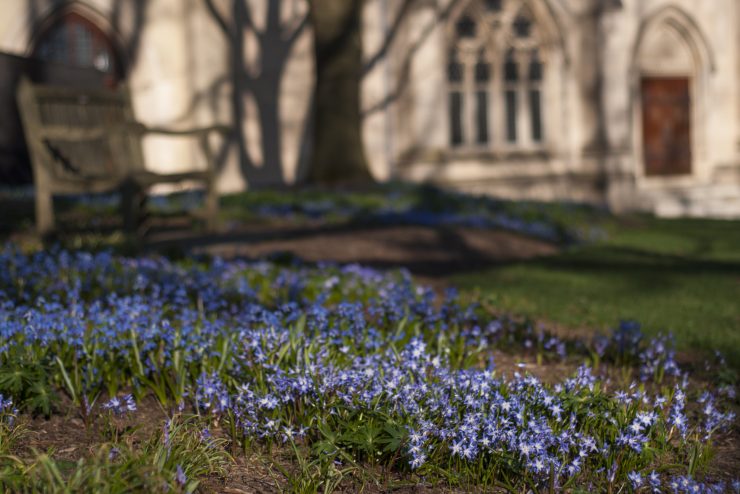Rev. Sally Slater

Who is a God like you, pardoning iniquity
and passing over the transgression
of the remnant of your possession?
He does not retain his anger for ever,
because he delights in showing clemency.
He will again have compassion upon us;
he will tread our iniquities under foot.
You will cast all our sins
into the depths of the sea.
(Micah 7:18-19)
Lent is one time when the Episcopal Church encourages each of us to meet with a priest, and, using the office “Reconciliation of a Penitent,” found in the Book of Common Prayer (BCP), confess our sins. I made my first individual confession during Lent several years ago. It wasn’t easy. I first had to get past the idea that doing this was “not-Episcopalian.” As a cradle Episcopalian, making an individual confession to a priest was not something I grew up with—it was something my Roman Catholic friends did. The second thing I had to work through was my own fear. Fear that I would be judged. Fear that I would do it “wrong.” Fear that the trusted priest to whom I was confessing my sins would think less of me as a Christian or less of me as a person. And it was hard, at first.
As I heard myself talk about times I fell short in being the person God had created me to be, and of living the life God called me to live, I had a feeling of being held and loved by God. I felt lightness—a peace—rise up within me. It felt like I had laid down a heavy burden. Until that moment, I hadn’t realized how much my own shame and guilt about how I had fallen short of living as Jesus teaches us to live had weighed me down. How much that “stuff” had become a barrier in my relationship with God. I’d lost sight of the fact that God is always reaching out—to me, to you, to us—with love, with compassion, with mercy, because we are God’s beloved children.
Micah writes: “God delights in showing us clemency.” God delights. God doesn’t grudgingly forgive our sins. God delights. God doesn’t harshly judge us when we name the things “we have done which we ought not to have done, and not done those things which we ought to have done.” God shows compassion, again and again and again and again. God knows we are not perfect. God knows the burdens we carry because of the wrong we have done, and how those sins keep us separate from God, from each other, and from ourselves. What burdens are you carrying? What “iniquities” do you need God to tread under foot? What “sins” do you want God to cast into the depths of the sea?